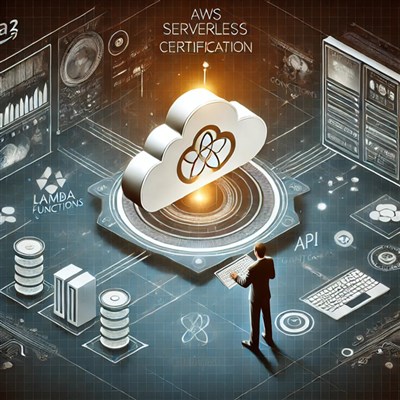
As businesses increasingly migrate to the cloud, the demand for professionals who can manage and maintain cloud infrastructure is skyrocketing. These professionals — known as cloud administrators — are responsible for ensuring that cloud systems run securely, efficiently, and with minimal downtime.
But cloud administration isn’t just a rebranded sysadmin job. It requires a specialized skill set that spans multiple platforms, tools, and processes — all of which are taught through cloud administration training.
In this blog, we’ll explore the top skills you’ll gain from cloud administration training, how they prepare you for real-world roles, and why they’re essential for today’s hybrid and cloud-native environments.
Top Skills You’ll Gain from Cloud Administration Training
🔹 1. Cloud Platform Proficiency (AWS, Azure, GCP)
What You’ll Learn:
- Navigating consoles, command lines, and cloud SDKs
- Deploying virtual machines, containers, and serverless functions
- Understanding core services: compute, storage, networking, and databases
- Managing identities, permissions, and billing
Why It Matters:
Whether you're working on AWS, Azure, or Google Cloud Platform (GCP), platform fluency is a must-have. Training helps you master core services, configure resources, and manage accounts — all while understanding how each provider structures its offerings.
🔹 2. Virtual Machines and Compute Resource Management
What You’ll Learn:
- Provisioning and managing EC2, Azure VMs, and GCP Compute Engine
- Configuring instance types, images, and autoscaling groups
- Implementing automation with startup scripts or cloud-init
- Managing compute lifecycle and monitoring usage
Why It Matters:
Virtual machines remain a critical part of cloud infrastructure. Cloud admin training ensures you can efficiently provision, maintain, and scale compute resources, optimizing performance and cost.
🔹 3. Storage and Database Administration
What You’ll Learn:
- Creating and managing object storage (S3, Azure Blob, GCS)
- Understanding block vs. file storage
- Configuring lifecycle policies and data redundancy
- Basics of cloud-native database administration (RDS, Cosmos DB, BigQuery)
Why It Matters:
Data is at the core of every cloud application. With training, you’ll learn how to store, organize, secure, and back up data using platform-native storage and database services.
🔹 4. Networking and Connectivity
What You’ll Learn:
- Designing and configuring Virtual Private Clouds (VPCs)
- Managing firewalls, security groups, and network ACLs
- Setting up DNS, load balancers, and VPNs
- Hybrid networking: connecting on-premise to cloud
Why It Matters:
Without secure, scalable networking, your cloud infrastructure won’t work properly. Training helps you design robust network architectures that support application performance, security, and cross-region connectivity.
🔹 5. Identity and Access Management (IAM)
What You’ll Learn:
- Creating and managing users, groups, and roles
- Defining and assigning policies using IAM and RBAC
- Implementing multi-factor authentication and password policies
- Monitoring access logs and auditing activity
Why It Matters:
Security starts with identity management. Cloud administration training teaches you how to grant the right access to the right people, minimizing risks and ensuring regulatory compliance.
🔹 6. Cloud Automation and Infrastructure as Code (IaC)
What You’ll Learn:
- Writing infrastructure scripts using Terraform, AWS CloudFormation, or Azure Bicep
- Automating resource provisioning and scaling
- Using CI/CD pipelines for configuration deployment
- Scheduling automated backups and updates
Why It Matters:
Manual provisioning is slow and error-prone. With IaC and automation, you can rapidly and reliably deploy environments, scale workloads, and apply consistent configurations — all critical in DevOps ecosystems.
🔹 7. Monitoring, Logging, and Performance Tuning
What You’ll Learn:
- Using tools like AWS CloudWatch, Azure Monitor, and GCP Operations Suite
- Setting up alarms, health checks, and usage dashboards
- Logging events and troubleshooting failures
- Optimizing system resources and application performance
Why It Matters:
You can’t fix what you can’t see. Monitoring and logging skills help you spot issues before they escalate, ensuring uptime and system health.
🔹 8. Backup, Disaster Recovery, and High Availability
What You’ll Learn:
- Automating backup policies and retention
- Configuring multi-zone and multi-region redundancy
- Disaster recovery planning and simulation
- Designing for high availability (HA) and failover
Why It Matters:
Downtime is expensive. Cloud admin training gives you the knowledge to design resilient systems that withstand outages and recover quickly from disruptions.
🔹 9. Security and Compliance Best Practices
What You’ll Learn:
- Encrypting data at rest and in transit
- Implementing firewall rules and endpoint protection
- Securing APIs and SSH access
- Managing compliance (GDPR, HIPAA, ISO 27001)
Why It Matters:
Cloud administrators play a major role in enforcing security and compliance policies. Training prepares you to recognize threats and ensure systems meet both internal and external standards.
🔹 10. Cost Management and Budgeting
What You’ll Learn:
- Estimating and forecasting usage costs
- Configuring billing alerts and cost analysis tools
- Rightsizing resources and using reserved instances
- Managing tagging and resource tracking
Why It Matters:
Cloud is pay-as-you-go — and bills can spiral without oversight. Training empowers admins to manage cloud costs intelligently, aligning budgets with actual usage.
👨💼 Who Should Enroll in Cloud Administration Training?
Cloud admin training is ideal for:
- System administrators transitioning to cloud environments
- IT support staff learning cloud operations
- DevOps engineers managing infrastructure pipelines
- Network engineers extending on-prem into the cloud
- Junior cloud professionals pursuing AWS, Azure, or GCP certifications
📈 Organizational Benefits of Trained Cloud Admins
|
Area |
Benefit |
|---|---|
|
Reliability |
24/7 system uptime and rapid incident response |
|
Security |
Hardened systems and minimized vulnerabilities |
|
Efficiency |
Reduced manual work via automation and standardization |
|
Cost Savings |
Smarter provisioning and billing management |
|
Scalability |
Environments that grow seamlessly with demand |
🧭 Final Thoughts
Cloud administrators are the unsung heroes of digital transformation. They build, maintain, and protect the platforms that businesses run on — often quietly behind the scenes.
But to thrive in this high-demand field, you need the right skills.
Cloud administration training gives you hands-on, platform-specific knowledge while also teaching big-picture thinking around cost, security, and automation. Whether you're supporting a small SaaS app or an enterprise-scale system, these skills make you a critical asset to any tech team.
✅ Final Takeaway:
If you're ready to take your IT career to the next level, cloud administration training is your launchpad. It equips you with technical expertise, operational efficiency, and strategic insights to excel in the fast-paced world of cloud computing.
Start your journey towards becoming a cloud administration expert with Koenig Solutions, a leading IT training company with a proven track record in providing certifications in top technology courses.







COMMENT